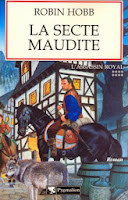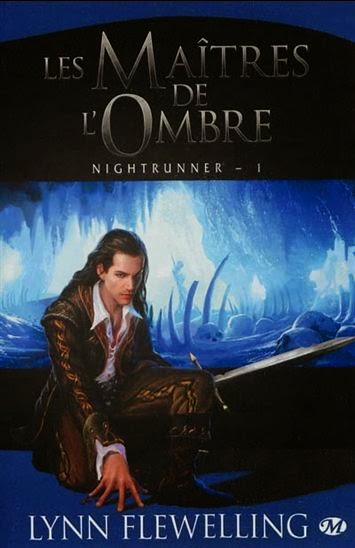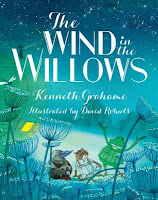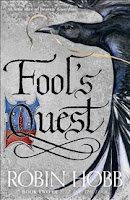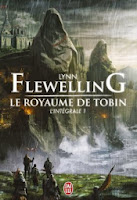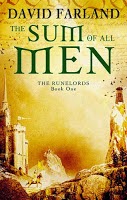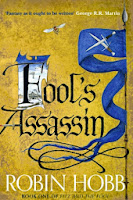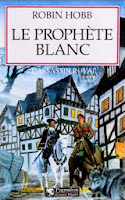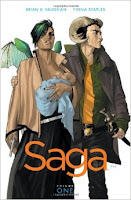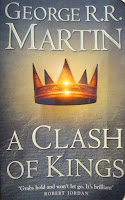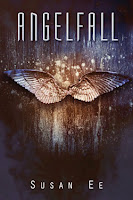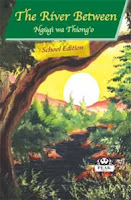Fiodor Dostoïevski
Le Joueur
1867
Ne commencez pas ce roman en vous disant: ah, enfin un classique! Ne le lisez pas par intérêt pour son sujet: même sa description de l'addiction
aurait pu être plus marquante. Pour tous les thèmes qu'il effleure, il n'y a pas de révélation profonde sur la condition
humaine dans ce roman. Non, son réel apport se trouve dans sa façon de manier la syntaxe ; c'est ici que l'auteur frappe son meilleur coup: on suit les tribulations mentales d'Alexeï et on y reconnaît les siennes: nos petits vices, nos faibles espoirs, et les semi-vérités_ souvent dérangeantes d'ailleurs_ qui se frayent un chemin entre les "et puis quoi?!", les impulsions interrompues et les pensées inachevées. Comme chacun de ses coups à la roulette, la narration d'Alexeï n'est jamais vraiment définitive. J'ai pris cela pour le récit d'un homme qui trouve un "sens" à sa vie par lequel combler le vide creusé par les autres.
Le roman reste cependant une peinture intéressante, sans être intrigante, de la seconde partie du 19ème siècle, dans laquelle les sociétés superficielles et franchement (littéralement) opportunistes de l'Europe se rencontrent. Ce n'est pas la peinture la plus complète de la vie, mais celle plutôt honnête d'un monde sournois.
Tags: the "look-through-the-bus-window-observe-and-criticise" thing, the know-it-all young white man, 19th century society, close quarters, ladies and gents' courtship dance, roman de mœurs, un peu de contemplation de la vie, social structure
AUTEURS' LIBRARY
Austen Jane
(1)
Barrie J. M.
(1)
Bowen Elizabeth
(1)
Cooper James Fenimore
(2)
Cronin A.J.
(2)
Dostoyevsky Fyodor
(1)
Ee Susan
(2)
Farland David
(1)
Fitzgerald F. Scott
(1)
Flewelling Lynn
(1)
Forster E. M.
(2)
Gaskell Elizabeth
(1)
Golding William
(1)
Grahame Kenneth
(1)
Harpman Jacqueline
(3)
Hobb Robin
(5)
Ishiguro Kazuo
(1)
Le Guin Ursula K.
(2)
London Jack
(1)
Martin George R. R.
(3)
Melville Herman
(1)
Murail Marie-Aude
(1)
Ngῦgῖ wa Thiong’o
(1)
Pilcher Rosamunde
(1)
Ryan Anthony
(2)
Salinger J. D.
(1)
Shaw George Bernard
(2)
Stegner Wallace
(2)
Steinbeck John
(1)
Stevenson Robert Louis
(2)
Tarkington Booth
(1)
Vaughan Brian K.
(1)
Webb Mary
(2)
Wharton Edith
(1)
Sunday, 31 August 2014
Monday, 11 August 2014
Auteur's library
F. Scott Fitzgerald
The Great Gatsby
1925
Recommended...and not!
Recommended for its ability to capture feelings and gestures, behaviours and emotions, not just peculiar to a certain time but relevant across periods of history. However, there's not much beyond that. It's overwritten, a little thin on subject matter, and the latter is more of a pathetic portrayal than a deep one.The last paragraph is easily worth more than the whole book.
The Great Gatsby is the kind of book that I would have liked more had I never heard about it before. It has been boasted about but truly, I think it holds more of a place in literary history than in literature per se, and will probably be more interesting to the scholar than to the reader.
P.S. Some cliché, very borderline, racial representation (particularly of Jewish characters).
Tags: early 20th century, nouveaux riches, period piece, Jazz Age/Roaring Twenties, the flapper, close quarters, ladies & gents' courtship dance, the "look-through-the-bus-window-observe-and-criticise" thing, socio-cultural disenchantment
The Great Gatsby
1925
Recommended...and not!
Recommended for its ability to capture feelings and gestures, behaviours and emotions, not just peculiar to a certain time but relevant across periods of history. However, there's not much beyond that. It's overwritten, a little thin on subject matter, and the latter is more of a pathetic portrayal than a deep one.The last paragraph is easily worth more than the whole book.
The Great Gatsby is the kind of book that I would have liked more had I never heard about it before. It has been boasted about but truly, I think it holds more of a place in literary history than in literature per se, and will probably be more interesting to the scholar than to the reader.
P.S. Some cliché, very borderline, racial representation (particularly of Jewish characters).
Tags: early 20th century, nouveaux riches, period piece, Jazz Age/Roaring Twenties, the flapper, close quarters, ladies & gents' courtship dance, the "look-through-the-bus-window-observe-and-criticise" thing, socio-cultural disenchantment
Friday, 1 August 2014
Auteur's library
 Elizabeth Gaskell
Elizabeth GaskellNorth and South
1855
A tremendous
masterpiece in its scope, a shock-book that could see the issues of its time_
and ours_ before they were acknowledged; that could find a strong interest in
people that were rarely talked about; that wasn’t afraid of telling us about
the rights and wrongs of our most beloved movements.
North and South follows the route from a dualistic conception of life to the apogee of this meeting between dualisms: two people, two ways of life...and their alternatives. This is not a book with one ready-made solution; there is no ideal, there are only truths under that one honest desire to understand the other. North and South teaches you how to learn how to love.
The writing is superb, as if complex thoughts and situations were flowing from the author’s vision to her hand without effort, as if she was merely revealing a situation that was really there, lifting in a few fluid sentences the curtain of your own mind and that of your neighbour.
This is the poetry of the mind that thinks hard and is never afraid of going too far.
North and South follows the route from a dualistic conception of life to the apogee of this meeting between dualisms: two people, two ways of life...and their alternatives. This is not a book with one ready-made solution; there is no ideal, there are only truths under that one honest desire to understand the other. North and South teaches you how to learn how to love.
The writing is superb, as if complex thoughts and situations were flowing from the author’s vision to her hand without effort, as if she was merely revealing a situation that was really there, lifting in a few fluid sentences the curtain of your own mind and that of your neighbour.
This is the poetry of the mind that thinks hard and is never afraid of going too far.
Tags: historical relevance, industrial revolutions, capitalism & industrialisation, unions & syndicats, social observation, class confrontation, socio-political structure & agenda, famille & land, feminism, faith vs. religion, ladies & gents' courtship dance, 19th-century society, roman de mœurs, close quarters, religious doubts and questions
Subscribe to:
Comments (Atom)

